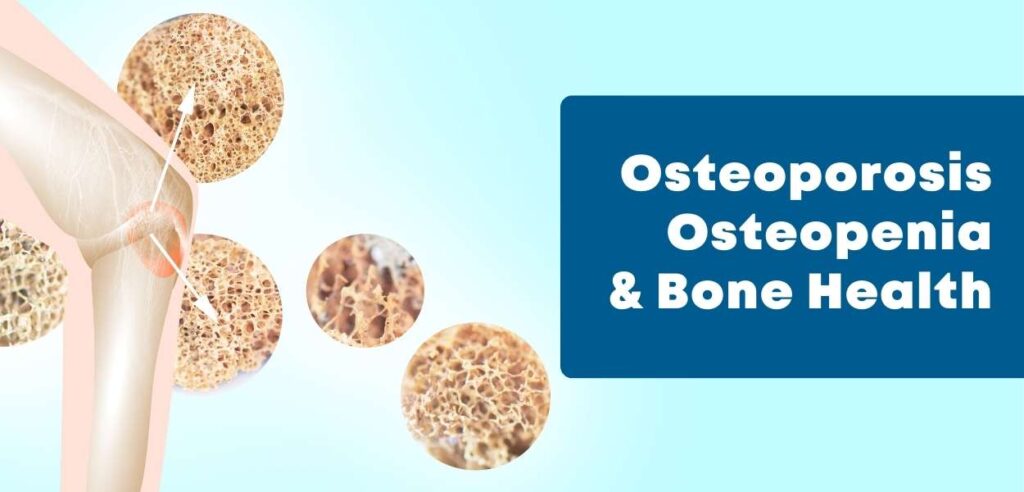Osteoporosis and Bone Health: You Need to Know these things
Osteoporosis is a condition that weakens bones, making them fragile and more likely to break. It’s often called a “silent disease” because most people don’t know they have it until they experience a fracture—usually in the hip, spine, or wrist.
What Causes Osteoporosis?
Our bones are constantly changing. In our younger years, our body builds more bone than it loses, making them stronger. However, as we age, this balance shifts. Around the age of 30, our bone-building process slows down, and we start losing more bone than we make. For some, this bone loss leads to osteoporosis.
Several factors can increase the risk of developing osteoporosis:
- Aging: As you get older, your bone density naturally decreases.
- Hormones: Especially in women after menopause, when estrogen levels drop.
- Family history: If your parents or grandparents had osteoporosis, you may be at higher risk.
- Lack of calcium and vitamin D: These nutrients are vital for bone health.
- Inactive lifestyle: Lack of physical activity weakens bones.
- Smoking and excessive alcohol: Both contribute to bone loss.
How to Keep Your Bones Healthy
Good bone health is about building and maintaining strong bones, no matter your age. Here are simple ways to take care of your bones:
- Eat a Bone-Healthy Diet:
- Calcium and vitamin D are essential for keeping bones strong. Dairy products, leafy greens, fish, and fortified foods like cereals are great sources of calcium. You can get vitamin D from sunlight, but also from foods like fatty fish and eggs, or supplements if needed.
- Exercise Regularly:
- Weight-bearing exercises like walking, running, and dancing help strengthen bones. Muscle-strengthening activities like lifting weights or using resistance bands are also excellent for keeping bones dense.
- Quit Smoking and Limit Alcohol:
- Smoking can weaken bones, and too much alcohol can interfere with your body’s ability to absorb calcium.
- Get Regular Bone Density Tests:
- As you get older, especially for women over 50, it’s important to have a bone density test (DEXA scan) to see if you’re at risk of osteoporosis. Early detection can help you take action to protect your bones.
Signs of Osteoporosis
Osteoporosis doesn’t show obvious symptoms in the early stages. Many people don’t know they have it until they break a bone. However, some warning signs include:
- Loss of height over time: This can be due to compression fractures in the spine.
- Back pain: Caused by collapsed vertebrae.
- Bones that break easily: Even with minor falls or injuries.
Treatment for Osteoporosis
If you’re diagnosed with osteoporosis, treatments are available to help prevent further bone loss and reduce the risk of fractures. These include:
- Medications: There are several types of medications designed to slow down bone loss or even help build bone mass.
- Lifestyle Changes: Eating a balanced diet rich in calcium and vitamin D, and staying active can make a big difference.
- Supplements: If your diet doesn’t provide enough calcium or vitamin D, supplements can help.
Osteoporosis can significantly impact your quality of life, but there are ways to prevent it and manage it effectively. Focus on eating well, staying active, and avoiding habits like smoking and excessive drinking that weaken bones. Don’t forget to talk to your doctor about bone density testing if you’re at risk. With a few simple lifestyle changes, you can keep your bones strong and healthy for years to come.

